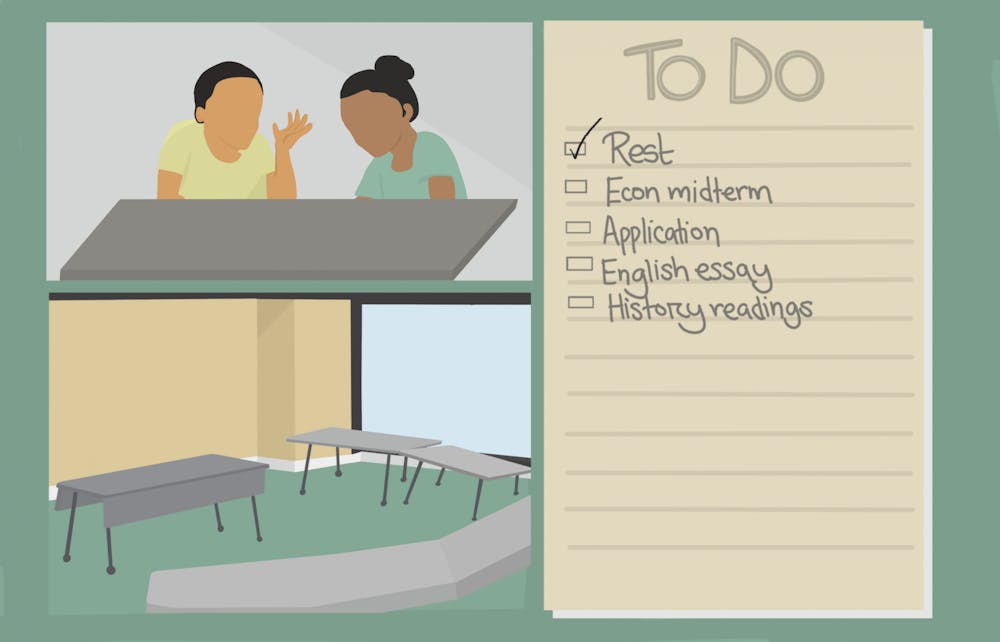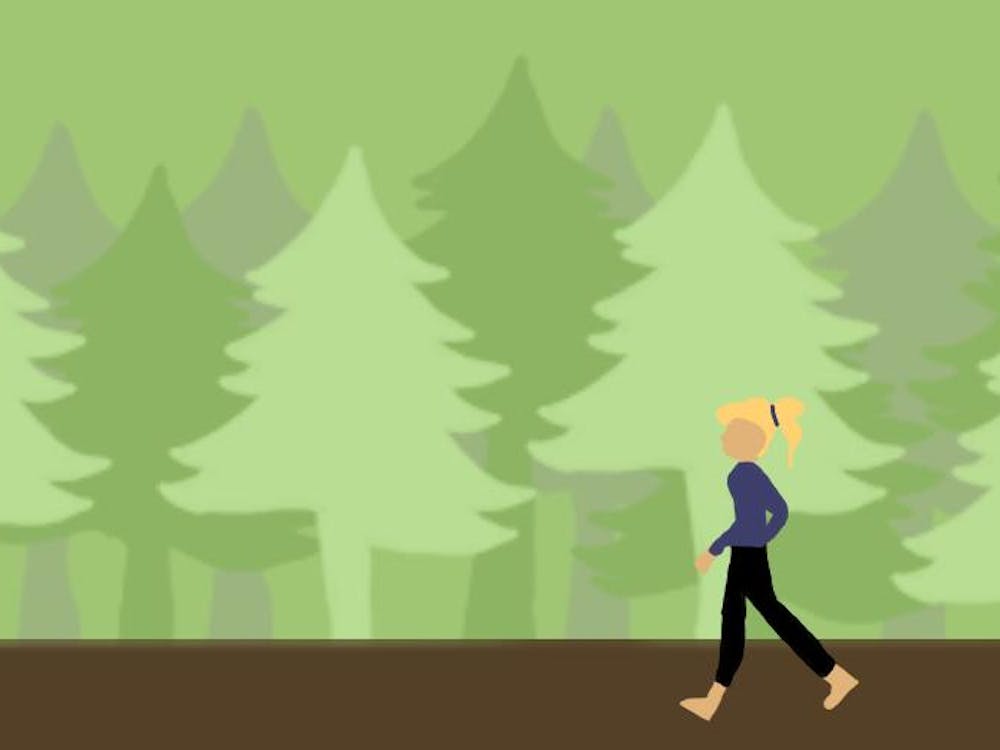10. Bring water — and snacks if your professor allows it
Staying hydrated and well nourished can be tough since our lives have made the transition from the comforts of virtual work back to the stereotypical classroom environment we all remember from our high school and early college years. A study by the University of East London found that students who bring water to their classes could expect to see their grades improve by up to 10 percent. Having a well-hydrated body and mind is crucial to get through the toughest of classes, and it also affords us a little distraction from the droning voice of professors in lecture halls.
9. Take notes with pen and paper
Some may think that this is a little old-school, and it is more convenient than ever to jot down lecture notes on a computer. However, from personal experience, I can attest that hand-writing notes makes the time in class go by a bit faster. Writing is a kinetic art that engages the senses in a way that typing cannot replicate, and there have been studies that show how handwritten note taking can actually improve learning and understanding new material.
8. Chat with your classmates
The great return to lecture halls and classrooms has given us the opportunity to engage face-to-face with our peers, and it is refreshing to see people liberated from their virtual meeting cells to desks and chairs in classrooms throughout the University. Ask your seat neighbor about their thoughts on classes. A little small talk can go a long way in making someone’s day, and it can also revitalize the academic community that was lost as a result of virtual learning.
7. Create space in your routine for relaxation or exercise
A morning run, an episode of your favorite show or a mid-afternoon nap are all great ways to decompress some of the stresses of in-person learning. Allowing some time to get away from all the hustle and bustle of crowded lecture halls and tightly packed classrooms can reduce the toll that in-person classes have on the senses.
6. Be an active participant in classes
It is understandable that most people just want to go to class just to get it over with, and being a passive participant is how most people spend their time in class. On the off chance that your professor asks a thoughtful question, take a shot at it. In my personal experience, critically engaging with the material is a great way to make the time go by. It can also make the class more fun!
5. Respectfully communicate with your professors
Taking the time to engage in conversation with professors reduces the stress levels that can subsequently be associated with academia, and I can attest to this tip through personal experience. There were times in the past where I wanted to speak with professors, but the virtual environment left us all with cold, pixelated screens illuminating our rooms. Thankfully we now have the opportunities to meet the people behind the screen in a way that is much more engaging and mentally rewarding.
4. Dress comfortably when going to classes
I think that we can all agree that we miss wearing our sweatpants and oversized sweaters when everything used to be virtual. However, there is no fashion police at the University — as far as I am aware — so embrace the upcoming sweater weather. Fortunately, we have proof that donning our comfy clothes even makes us better students! A study done at Austin Community College and others in the area found that wearing the clothing that you feel most comfortable in can increase productivity and test scores.
3. Have some time to keep in touch with family and friends
Taking time to disconnect from schoolwork is great, and how could that time be spent? Call your family and friends! It is almost guaranteed that they probably miss talking to you a lot more than you might expect, and taking a break in the academic grind can be a kind gesture to both yourself, your friends and family.
2. Try to maintain your hobbies
Maintaining hobbies is no easy task when there are deadlines fast approaching, but they serve as a constructive escape from the burdens associated with academia. Sometimes it becomes difficult to maintain little joys in life brought from actions like journaling, sketching or playing musical instruments as going to and from in-person classes can feel like quite the rat race. Nurturing a hobby has been proven to provide significant mental health benefits as well! Unfortunately, I don’t think that binge-watching Netflix is classified as a hobby.
1. Don’t be afraid to prioritize your mental health over your classes
Sometimes there is not anything that will prevent burnout from classes, and it is certain that this has happened to many. Sometimes the best thing to do when school is overwhelming you is to do nothing at all. Ensuring that you are well rested and mentally prepared to learn in this environment can be challenging sometimes, and — fortunately — there are many resources available at the University to accommodate these needs. Being in academia can be challenging, but the process can be extremely rewarding when your needs are met and you are at your best.
If you are struggling this semester and need assistance, please refer to CAPS at U.Va. The Women’s Center also offers counseling services and resources.







